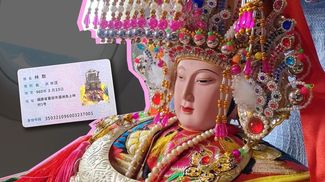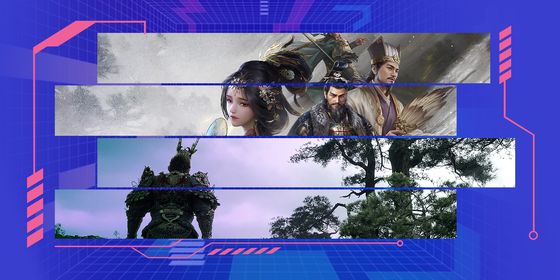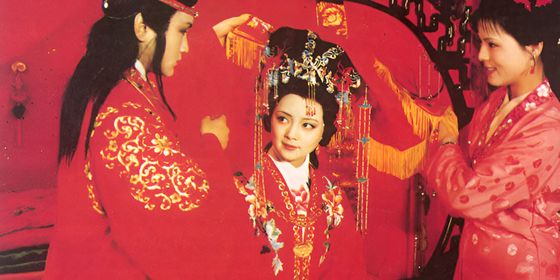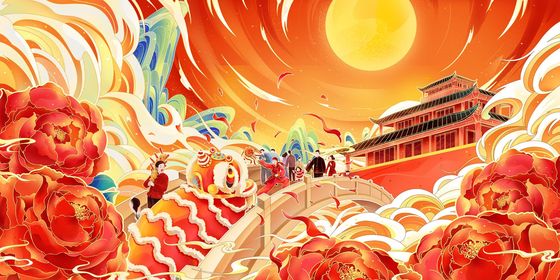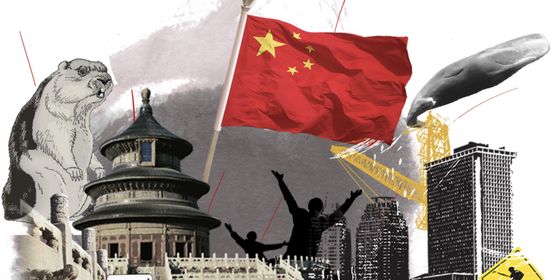An interview with short story writer Jiang Yitan
Publishing his annual story collections has garnered Jiang Yitan significant literary acclaim over the past five years. A decade ago it was his three full-length novels that drew readers’ attention, but it is undeniably his recent career as a short story writer that has put him firmly in the spotlight. Focusing on contemporary urban life in China, Jiang shies away from popular tales of glamorous cosmopolitan lifestyle and clandestine love triangles of sophisticated city dwellers. Instead, his pen points toward family ties, the gap between the rich and poor, and, ultimately, the struggles facing urban residents and their hopes for the future. Many believe he displays an exceptional ear for catching the female voice; his stories are always imbued with a certain femininity. It is often the range of his stories that leave the reader awestruck. Whether it is a lonely wife seeking a one-night stand after being inspired by a Clair Keegan story, a middle-aged family man desperately clinging to his dead mother’s memory by rearing her goat, or a comic book writer who lives his life through a series of imagined identities, Jiang’s work is forever moving you into new territory. In scope and style there are few modern short story tellers that can match Jiang’s success.
Recently, the largest Chinese online bookstores, Dangdang (当当网), Amazon China, and Duokan.com (多看阅读) signed a deal with you to distribute your short stories aonline at prices of 0.99 and 2.99 RMB. With so much free content online competing for readers’ attention, what do you think they see in you?
When one writes, the choices made about the work are relatively independent. A number of external factors came into play in my deal with them. The fact that the 2013 Nobel Prize in Literature went to Alice Munro had a huge impact on Chinese readers and literary critics. Literary Gazette, the most influential voice in China’s literary China Story, 2013 world, reported on Munro’s victory by stating that writing short stories can lead to success as well. Such a report is an expression of reality; for years, most literary critics and readers have believed that writers couldn’t make a career out of short story writing. These large online bookstores see a bright prospect for the literary market for online mobile platforms. I draw confidence from their vision as well. I also trust their operation. In the end, if Munro hadn’t won the Nobel Prize, They wouldn’t have signed me.
There seems to be few contemporary Chinese writers focusing on short story writing. What do you think is the reason? And, why do you focus on short stories so much?
The reason is simple:contemporary Chinese literature after 1979 basically crawled along. In other words, Chinese writers sought their own teachers and made individual quests. We didn’t have a contemporary literary tradition to speak of in any real sense. In the 80s, short stories greatly enhanced the communication and connection of literature and readers. Literary magazines had large circulation numbers in which full-length novels, medium-length novels, and short stories flourished. They were also the only outlet for fiction at the time. However,as the publishing industry gained rapid growth after 1993, full-length novels were able to bypass the periodicals to directly face readers in the market. As profit gradually took over the center of society, who could resist the temptation to make a few more RMB? I enjoyed short stories in college, but I had to finish three full-length novels in 1993 just to get by. They were all published the following year, and I gained my first bucket of gold at the age of 25. However, the pressure of surviving in Beijing just kept growing. I had to make up my mind to bury the dream of writing and became a publisher. When I hit 40 early in 2009, I became more bewildered by my past and the people around me. I realized that I had to change my old lifestyle and the way I had been relating to the world for the past few decades. While checking my old writings, I suddenly felt the impulse to write something. I picked up my pen to write and haven’t stopped since.
 Do you find it more important to concentrate on character or plot?
Do you find it more important to concentrate on character or plot?
This is a question I contemplated a few years back. I asked myself: “Jiang Yitan, what’s more important in your life: to live a wonderful plot or to find a way to understand the world?” I found that I value the latter more. It’s probably because of this conclusion that I am more concerned about overall story ideas as well as building the inner world of the character than the plot. With my imagination and narration, I want to show the confusion and fate of the characters in a way that the readers can understand and relate to.
You often write from the point of view of men and women of all ages, from different socieconomic backgrounds, and under various circumstances. Where do you get the inspiration and how do you manage to make each of them so convincing and realistic?
I believe in inspiration but more in the idea’s evolution. When an idea comes up, I put it in my notebook but delay writing. I let the idea live and die on its own. After a while, if the idea remains alive, then I will start to consider the point of entry for the story. In writing, I believe, first, you need talent; second, you need to be genuine, which can become the most important element. Be genuine toward literature, to the emotions of the characters. I want to tell the truth in my writing, and I believe I am putting down genuine words.
You said in a previous interview that you don’t fully trust writing based on personal experience. What’s the flaw of such a method in your opinion?
Where does literature come from? From life, but not entirely. If it’s imitation, writing is merely hard labor. In simple words, there are two kinds of writers. One lives and feels. When expressed in words, their experiences and feelings become their work. The other hides behind their creation, letting the characters and the stories communicate with the readers. They stay invisible. I want to be such a writer. Personally, I don’t believe in real life. To me, it’s illusive and unreliable. Only in our final moments can our reality really be tested. Literary writing serves to reflect on memories and to project the future. The day-today reality is only a mirror to be used as reference for the writers. Short story writing brings the water to the boil from time to time. For a writer, the biggest danger of relying solely on personal experience is to be trapped inside, to unconsciously repeat oneself and slowly stifle one’s literary creativity.
Why did you name your collection after your opening piece, “China Story”?
“China Story” was finished between the end of 2009 and beginning of 2010. It’s an emotional story about a Chinese father and his son. In the summer of 2010, a Chinese student in Ireland came up to me at a literary event. She was in tears and told me how she missed her father back in China upon reading the story. I was moved by her words. Chinese people and their families, it’s the essential theme of all my stories. I hope to write more stories like this and invite sinologists to translate them. I hope to put all my stories online, and the website’s name will also be “China Story”. I wish to bring alive the simple yet genuine emotions of the ordinary people in China, as well as their struggles in real life. It is also my biggest motivation to continue my short story writing.

